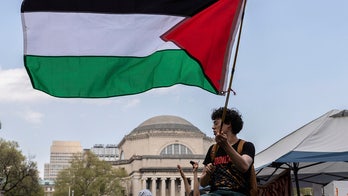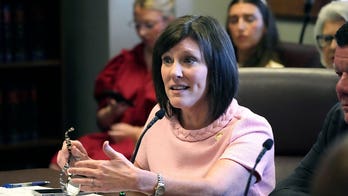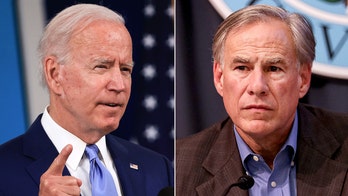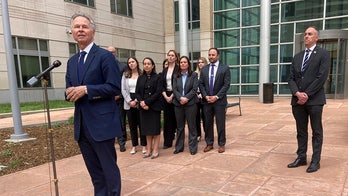Critics are raising questions about President Obama's decision to award the nation's highest civilian honor to a one-time U.N. human rights commissioner who presided over the 2001 international conference on racism that was marked by fiery anti-Israeli rhetoric.
Among the 16 recipients of the Presidential Medal of Freedom Wednesday were physicist Stephen Hawking, Sen. Ted Kennedy, tennis legend Billie Jean King and the late gay rights activist Harvey Milk.
But also on the list was Mary Robinson, the former president of Ireland who was heavily criticized for her performance as secretary-general during the 2001 World Conference Against Racism in Durban, South Africa.
The White House, in its statement announcing the medal recipients, cited Robinson's more recent work as head of Realizing Rights: The Ethical Globalization Initiative, saying she founded the organization to "make human rights the compass which charts a course for globalization that is fair, just and benefits all." All recipients are being honored as "agents of change," the White House said.
White House Press Secretary Robert Gibbs said Wednesday that Robinson was honored for her leadership on equal rights.
"(Obama) doesn't agree with each of her statements but she's certainly someone who should be honored," Gibbs said.
But U.N. Watch Executive Director Hillel Neuer released a letter and statement Wednesday accusing Robinson of having egged on "the purveyors of anti-Israel hatred" in the lead-up to the 2001 conference on racism.
"If you are to receive this medal, the American people are entitled to know precisely what the issues are," Neuer wrote. "Your support of one-sided U.N. measures only encouraged Palestinian extremists, deterred Israelis from trusting international institutions and promoted the futile path of feel-good unilateral censure, instead of the necessary path of dialogue and reconciliation."
One of the most detailed criticisms of Robinson's leadership during that period came from the late Democratic Rep. Tom Lantos, a Holocaust survivor who attended the Durban conference as a U.S. delegate.
In a lengthy assessment of the conference and preceding events, Lantos wrote that while the road to the conference was "paved with good intentions," Robinson "failed to provide the leadership needed to keep the conference on track." He also laid some blame on the Bush administration.
Lantos wrote that during an earlier meeting in Iran, Robinson played only a "tentative role in confronting the discriminatory practices" of Iran against Israelis -- like the country's ban on granting visas to Israelis. Later on, Lantos wrote that Robinson "refused to reject the twisted notion that the wrong done to the Jews in the Holocaust was equivalent to the pain suffered by the Palestinians in the Middle East."
The United States and Israel ultimately withdrew from the Durban conference over draft resolution language that appeared to single out Israel for criticism.
Former U.N. Ambassador John Bolton wrote in a Wall Street Journal column this week that Robinson has shown "no remorse" for the tone of the conference since.
During a 2002 BBC interview, Robinson conceded the conference was "extremely difficult" and cited the "horrible anti-Semitism present." But she said the final text was "remarkably good."
Despite the criticism, Robinson generated strong support from other corners.
Nancy Rubin, a Jewish American and former ambassador to the U.N. Human Rights Commission, wrote in testimony that Robinson's critics fail to note that she has denounced anti-Semitism and did not accept the more inflammatory document that came out of a coinciding NGO forum at Durban. That document, according to Lantos, called for an international war crimes tribunal to try Israelis, and "branded Israel a 'racist apartheid state' guilty of 'genocide' and called for an end to its 'racist crimes' against Palestinians."
Rubin said Robinson's "conscience and intellectual activism" have made her unpopular, but that she is a human rights leader.
"(Robinson) embodies the principle that human rights are universal," Rubin said.




